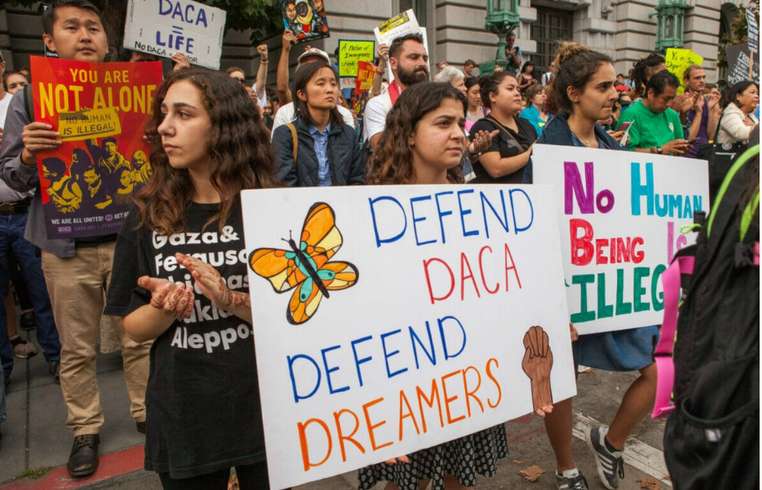
Appeals Court Hears Arguments Over DACA’s Future

The future of the Deferred Action for Childhood Arrivals (DACA) program remains uncertain as the Fifth Circuit Court of Appeals recently heard arguments regarding its legality. DACA, which protects hundreds of thousands of young undocumented immigrants known as “Dreamers” from deportation, has been the subject of intense legal battles since its inception in 2012 under the Obama administration.
Background on DACA
The DACA program was introduced to offer temporary protection to undocumented individuals who arrived in the United States as children, allowing them to work legally and pursue education without the threat of deportation. While DACA does not provide a pathway to citizenship, it grants renewable two-year work permits and deportation relief. Over 800,000 people have benefited from the program, becoming integral members of the U.S. workforce, education system, and society.
The Legal Battle
In recent years, DACA has faced several challenges. The latest case was brought by a coalition of states led by Texas, arguing that the program was unlawfully created through executive action without Congressional approval. A lower court judge ruled in 2021 that DACA is illegal, but allowed it to continue temporarily for existing recipients while the appeals process unfolds.
The Biden administration has been working to preserve DACA, recently issuing a new rule aimed at solidifying its legal foundation. However, the states challenging the program maintain that even the new rule cannot remedy the fundamental issues they see with DACA’s legality.
Key Arguments Presented
During the oral arguments, the three-judge panel considered several aspects, including whether the states challenging DACA have the standing to sue, and if the program imposes financial burdens on states, such as healthcare and education costs. The federal government argued that DACA recipients contribute significantly to society and that ending the program would disrupt countless lives.
Conversely, the opposing states contended that DACA encourages illegal immigration and that it is Congress, not the executive branch, that should establish immigration policy. The judges appeared divided in their questioning, signaling the complexity of the case.
What’s at Stake?
For Dreamers, the outcome of this legal battle is not just a policy issue, but a matter of personal security and stability. Many DACA recipients have lived in the U.S. for most of their lives and have built careers, families, and communities here. An adverse ruling could jeopardize their ability to remain in the country, affecting their lives and those of their families.
Looking Ahead
The Fifth Circuit’s decision, expected in the coming months, could have significant implications for the Biden administration’s efforts to safeguard DACA. Should the appeals court rule against DACA, the case will likely head to the Supreme Court, setting up a potential landmark ruling on the program’s fate.
With the fate of hundreds of thousands hanging in the balance, this case is not just a legal matter but a reflection of America’s ongoing struggle to reform immigration policy in a way that balances compassion with the rule of law.
